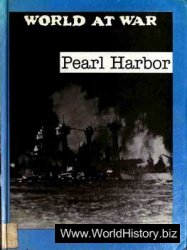With the return of Republican control to the White House in 1921, President Warren G. Harding’s administration set about to restore many traditional Republican policies, such as tax cuts and higher protective tariffs. President Harding’s secretary of the treasury, Andrew W. Mellon, strongly advocated that both these policies be adopted shortly after the new administration entered office. In particular, World War I had allowed the chemical and metal industries to develop a number of innovative technologies. Industry leaders, along with Mellon, argued for a higher protective tariff to allow them further time to develop these advantages. The Fordney-McCumber Tariff of 1922 increased tariff rates on chemical and metal products as a safeguard against the revival of German industries, which had dominated these sectors of the international economy prior to the outbreak of hostilities in Europe in 1914.
The imposition of a new protective tariff in the United States had far-reaching consequences previously unimagined by the federal government. In particular, while the United States had been a debtor nation prior to the war, it emerged from the war as a creditor nation. As a result, the international economy increasingly depended upon U. S. capital for its economic development. European nations and their citizens owed some $13 billion to the United States at the end of the world war. Moreover, the United States steadily made additional foreign loans and investments in the postwar period. The need to make loan repayments in U. S. dollars meant that the international community had a real need to be able to export its products to the United States in order to receive an influx of dollars that could be used to make the necessary payments on their loans. The Harding administration was adamant that European nations needed to repay all of their debts from the war. Consequently, the need for an open trade system became more and more apparent.
The return of a protective tariff to the United States often priced foreign goods out of the American economy. Although not the only factor, the protective tariff imposed by the United States in 1922 contributed to the extremely difficult economic conditions that Europe faced as a result of shifting economic power in the international community and the heavy reparations that constructed the German economy. Clearly, the First World War had altered the position of the United States in the international economy, and its economic policies would no longer affect only domestic conditions, but would also have implications that extended well beyond its own borders. The Fordney-McCumber Tariff, like the Hawley-Smoot Tariff that followed in 1930, contributed to world economic crisis in the 1930s.
Further reading: Edward S. Kaplan, Prelude to Trade Wars: American Tariff Policy, 1890-1922 (Westport, Conn.: Greenwood, 1994).
—David R. Smith




 World History
World History









